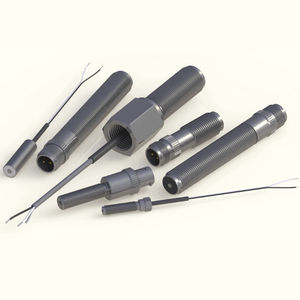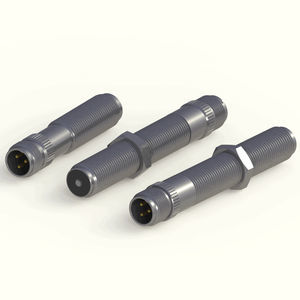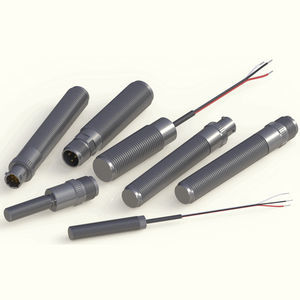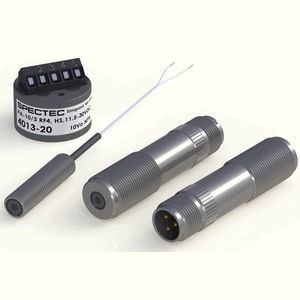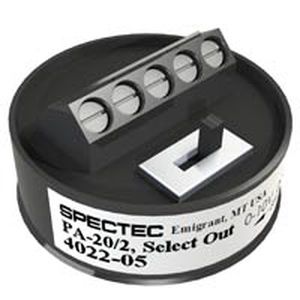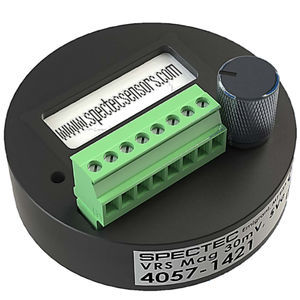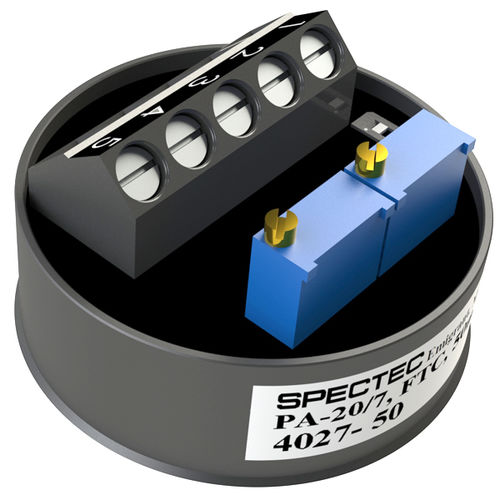
Frequency-to-current signal converter 4027 seriesintrinsically safedigital
Add to favorites
Compare this product
Characteristics
- Signal type
- frequency-to-current
- Other characteristics
- digital, intrinsically safe
Description
Frequency to Current and Frequency to Voltage Signal Converters are used to transform the sinusoidal output of a Variable Reluctance Speed Sensor to an analog current or voltage signal. The signal will remain a constant current or voltage at a specific flow rate (e.g., 4 mA at no-flow and 20 mA at maximum flow).
Available in puck style housings that can be mounted in electrical cabinets or dropped into conduit elbows and enclosures.
The 4026 Converter incorporates both FTC & FTV conversion circuits (e.g. 4-20 mA or 0-10V Analog output signals) and includes the option to convert a digital output (square wave signal).
Intrinsically Safe and Explosion/Flame Proof versions are also available for Hazardous Locations.
Digital to Digital converters are used to convert one digital output (square wave signal) to another.
APPLICATIONS
• Flow metering
• Engine speed (crank and flywheel)
• Conveyor / Process speed
• Retrofit new electronic systems to older equipment
The FTC converter receives frequency input and converts to a proportional 4-20mA output. It has been configured to fit a compact 1/2 and 3/4" NPT "ELBY" explosion proof enclosure. The frequency range is field selectable to fit most applications. ZERO and SPAN adjustments make it easy to calibrate to almost any measurement range, with little interaction between the adjustments. The power supply input is designed to cover the entire range of commonly available DC power, with no selecting or adjusting.
Catalogs
Related Searches
- Signal conditioner
- Signal converter
- Sensor signal conditioner
- Amplifier signal conditioner
- Programmable signal conditioner
- Digital signal converter
- Multi-function signal converter
- Frequency-to-current signal converter
- Frequency-to-analog signal converter
- Intrinsically safe signal converter
- Speed sensor signal conditioner
*Prices are pre-tax. They exclude delivery charges and customs duties and do not include additional charges for installation or activation options. Prices are indicative only and may vary by country, with changes to the cost of raw materials and exchange rates.



